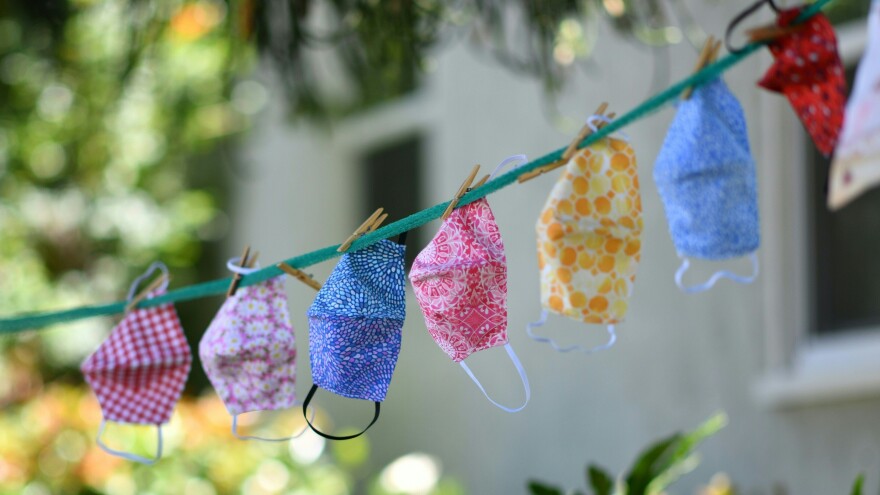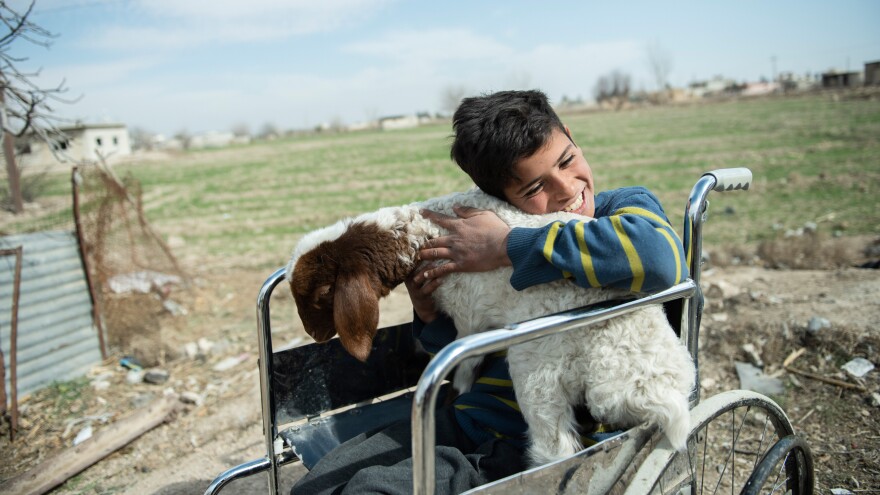Good morning. You're reading the Up First newsletter. Subscribe here to get it delivered to your inbox, and listen to the Up First podcast for all the news you need to start your day.
Today's top stories
Alabama Gov. Kay Ivey yesterday signed a bill into law prohibiting diversity, equity, and inclusion initiatives at public schools, universities and state agencies. Republicans say the law aims to protect students from indoctrination in the classroom. Democrats have criticized the law for its unclear language, including its ban on programs that teach "divisive concepts" surrounding race, gender and identity.
The Environmental Protection Agency has finalized strict new rules to limit car tailpipe emissions, which will push the auto industry to accelerate its transition to electric vehicles. The rule sets emissions standards across an entire fleet, meaning manufacturers can make gas vehicles if they make enough low or zero-emission cars to average out emissions. The regulations are crucial to President Biden's fight against climate change.
The "front page of the internet" is ready to go public. Reddit debuts on the New York Stock Exchange today. Its founders hope to make the site more profitable. But many of its power users aren't thrilled, and some want to bet against it.
From our hosts
This essay was written by Michel Martin. She hosts Morning Edition and Up First.

Many newsrooms — including all those I've been in — keep a running list of important anniversaries their reporters might want to cover: the day of the first Moon landing, the day Uncle Tom's Cabin was first published — things like that. If you listen to Morning Edition (I know you do!) then you know that we often mention historical events or another at the start of each hour.
Some of these anniversaries are things we'd prefer not to remember, but we pick them anyway because we know we need to, on some level. Maybe there's unfinished business connected to them; often, it's just too important to ignore—however much we may want to.
The Associated Press roundup I looked at yesterday reminded me that on March 20, four years ago, the Governor of Illinois told residents to stay home except for essentials like food and medicine. California and New York had already done this in a move to stop the spread of the coronavirus.
Nobody knew how long it would last; most people thought, maybe naively, it would only be for a couple of weeks. Stocks tumbled on Wall Street, ending their worst week since the 2008 financial crisis.
That was the least of it, for many people anyway. People started getting sick, some people started to die. People lost jobs. Schools shut down. Lines at food banks got long. Kids and parents went stir-crazy.
Some good things happened. Some people got to rediscover neglected hobbies like baking or sewing. Some got to spend quality time with loved ones they would not otherwise have had. But for many people, it was a sad, lonely, even terrifying time — and to be honest—do we really want to go back there?
Dr. Cornelia Griggs and Eric Klinenberg are two people who think we do need to go back there — to understand what happened to us and to think about what we should do differently. They both have written accounts of the worst months of the pandemic: Dr. Griggs from her vantage point inside a busy hospital, Klinenberg by interviewing New Yorkers around the city and adding research about how other countries dealt with the crisis. Both books are harrowing and uplifting —and to me, exhausting. I had to take breaks while reading. I did not want to think about all that again. I didn't want to go there, but now I am glad I did.
Picture show

NPR asked photojournalists from Everyday Projects — a global community of photographers using images to challenge harmful stereotypes — to send their photos of unexpected moments of joy, no matter how small. They shared photos of everything from former child soldiers playing soccer to an older couple's moment of togetherness.
See all the photos we featured for the International Day of Happiness here.
3 things to know before you go

This newsletter was edited by Majd Al-Waheidi. Mansee Khurana contributed.
Copyright 2024 NPR. To see more, visit https://www.npr.org. 9(MDM3NjYwMjA5MDE1MjA1MzQ1NDk1N2ZmZQ004))



